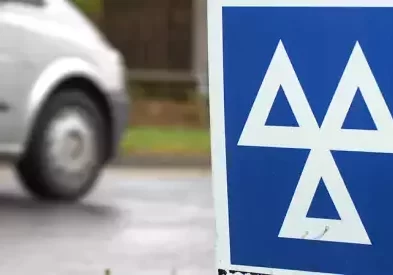Insight

Four motoring political battlegrounds which could influence the next election
As an automotive PR agency, we are acutely tuned in to the impact politics is having on key motoring issues. Here, Red Marlin account executive, Rhys Denham, offers his thoughts on four key areas which the current government hope will swing voters back its way.
In the ever-evolving political landscape, the year ahead promises a crescendo of bold and assertive statements from the two main political parties.
And with rumours that the Prime Minister, Rishi Sunak, is going to hold off until at least the autumn of 2024 before calling a general election, the Conservative party has focused its efforts on a crucial political battleground that rarely fails to spark heated debate – the world of motorists.
The Tories are advocating for a crackdown on what they perceive to be ‘anti-driver’ policies, as they argue that Labour is poised to introduce a slew of bureaucratic measures that will make the lives of drivers unnecessarily difficult.
ULEZ
London’s controversial ULEZ (Ultra Low Emission Zone) initiative, conceived in 2015 by the then-Mayor Boris Johnson, symbolises a seemingly endless quest. Successive London Mayors have strived to cleanse the capital’s air, marred by its historical ‘pea-soup’ reputation. Despite evidence indicating improved air quality, ULEZ remains highly controversial when out on the doorstep.
The heart of the matter lies in the current economic constraints that many voters are experiencing. Some are concerned that Sadiq Khan’s scrappage scheme doesn’t go far enough in assisting drivers to transition to ULEZ-compliant vehicles, therefore having an impact on not just members of the public, but small business, too. This issue is further compounded by record prices in the second-hand car market.
The Conservatives argue that should Labour take power, ULEZ will proliferate across the country, with promises of cost savings – genuinely seen as a winning message – as the Conservative’s rallying cry they hope will win voters over.
15-minute cities
The concept of a ’15-minute city’ conjures up images of limited visit durations. In reality, it advocates for universal accessibility within a 15-minute radius for all, without the need for long commutes.
While the concept itself isn’t inherently contentious, the Conservatives have reframed it as a ‘sinister’ ploy orchestrated by Labour councils to dictate people’s shopping habits. This distortion has left many perplexed, fostering discontent among those who fail to grasp its underlying principles. A lack of clear messaging around what a 15-minute city is could play into the Conservatives hands, especially as many see it as similar to our next issue.
Low Traffic Neighbourhoods
Low Traffic Neighbourhoods (LTNs), a response to the COVID-19 pandemic, were introduced to help facilitate social distancing. These measures restrict vehicle traffic through the strategic placement of planters, bollards, and road signs, offering more freedom to cyclists and pedestrians.
Proponents argue that LTNs have enhanced urban cleanliness and safety, even revitalising town centres that have historically struggled. However, Rishi Sunak’s recent decision to review the policy stems from concerns that these measures merely displace congestion rather than alleviate it. And what is worse than seeing someone else’s problems suddenly appear on your own doorstep?
20mph speed limits
The Conservatives have argued that the deployment of 20mph speed limits in Wales exemplifies Labour’s broader intentions for motorists on a national scale.
Introduced to reduce fatalities, noise, and promote sustainable transportation, the national press had a field day reporting on its implementation, and petitions have sprung up, calling for its removal, largely due to the perceived narrative that it increases commute times for motorists.
A lot was made of it when it came into play, maybe because it came in so shortly after the by-election result in Uxbridge and South Ruislip, but I think it will get rolled out again as a popular soundbite for the Conservatives.
A final word
What emerges is a recurring theme—a ‘them and us’ narrative—sought by the Conservatives as a political foothold.
In the year to come, this narrative will continue to be the life raft they cling to, steering the conversation and shaping the direction of motoring policies as they try to reverse the direction all polls are heading.
As the General Election approaches, expect the rhetoric to crescendo, and the battleground for motorists to intensify. Could it be the political battleground which will help the Conservatives pull themselves back into the race? I’m sceptical, but I do think it will create a lot of noise.
To read more expert insights on all things motoring and transport, visit our insights page.




